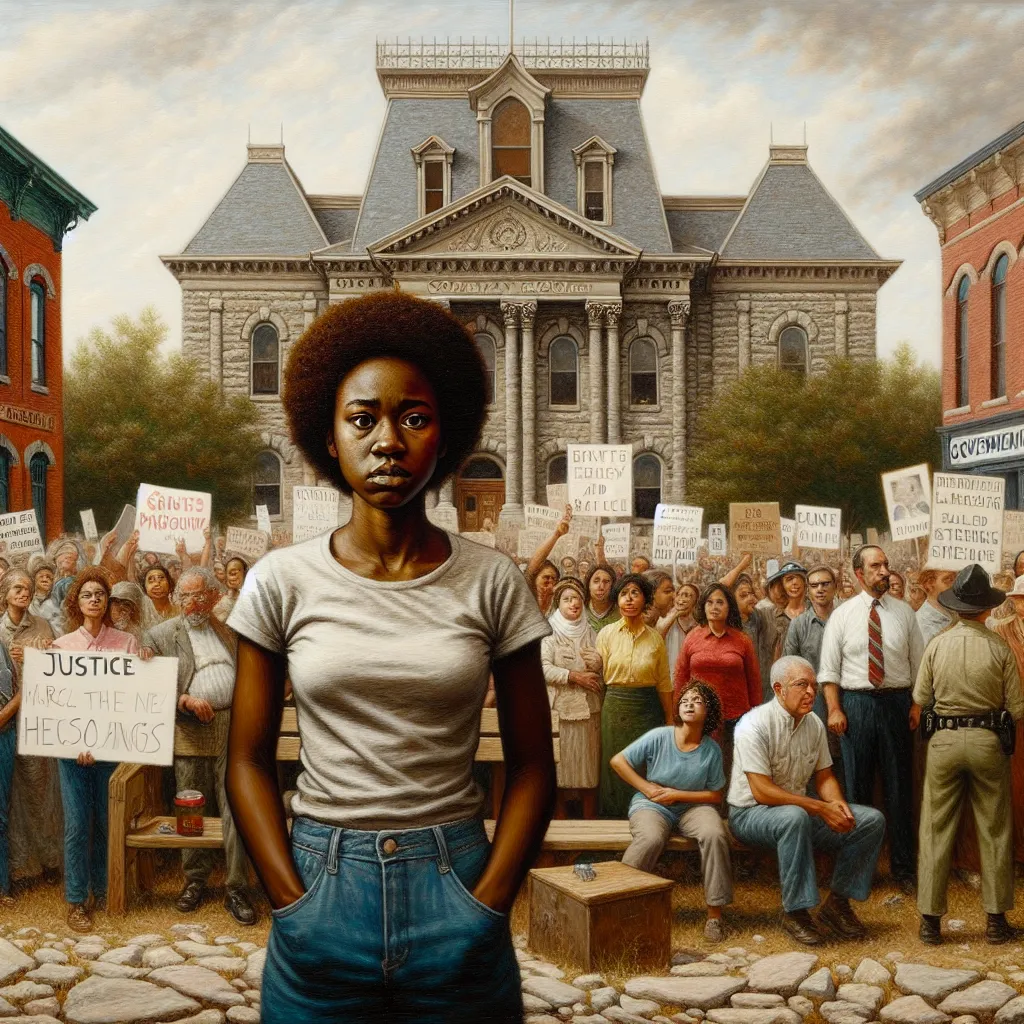
Unwavering Justice
In the heart of a bustling city, where the skyline was a testament to human ambition and resilience, lived a young African-American woman named Maya Thompson. Maya was a passionate supporter of the Black Lives Matter movement, dedicating her time and energy to advocating for justice and equality. Her voice was a beacon of hope for many, and her commitment to peaceful protest and community organization was unwavering.
One fateful morning, Maya's world was turned upside down. She awoke to the sound of heavy knocks on her apartment door. As she opened it, she was met by stern-faced federal agents who informed her that she was under arrest for allegedly hacking into government software. The accusation was as shocking as it was baseless. Maya had never engaged in any form of cybercrime; her activism was rooted in peaceful demonstrations and community outreach.
Despite her protests of innocence, Maya was taken into custody. The news of her arrest spread like wildfire, igniting a wave of outrage and disbelief among her supporters and the broader community. People who knew Maya, who had marched alongside her, who had seen her dedication to non-violence, were stunned. How could someone so committed to justice be accused of such a crime?
The trial was a grueling ordeal. Maya's defense team worked tirelessly to prove her innocence, presenting evidence that she had no involvement in the alleged hacking. The prosecution, however, seemed determined to make an example out of her, painting her as a dangerous radical. Throughout the trial, Maya remained composed, her faith in the justice system unshaken.
After weeks of testimony and deliberation, the jury reached a verdict: not guilty. Maya was exonerated, and the courtroom erupted in applause and tears of relief. Her supporters, who had gathered outside the courthouse every day, celebrated the victory. Maya, though relieved, knew that the battle for justice was far from over.
Despite Maya's calls for calm and peaceful celebration, a small faction of her supporters, fueled by anger and frustration, took matters into their own hands. In the dead of night, they set fire to a government building and several small businesses. The flames illuminated the night sky, casting a shadow over the victory that had been won in the courtroom.
The damage, though minimal, was a stark reminder of the volatility of the situation. The authorities acted swiftly, arresting those responsible for the arson. The individuals were condemned for their actions, and though they quickly paid their bail, the incident left a scar on the community.
Maya was heartbroken by the violence. She had always preached the importance of peaceful protest and had worked tirelessly to build bridges between different communities. The actions of a few had threatened to undermine everything she stood for. She addressed her supporters, urging them to channel their anger into constructive action, to continue the fight for justice through peaceful means.
In the weeks that followed, Maya redoubled her efforts to promote non-violence and community solidarity. She organized town hall meetings, bringing together people from all walks of life to discuss ways to address systemic injustice without resorting to violence. Her message was clear: true change could only be achieved through unity and peaceful action.
Maya's story became a symbol of resilience and hope. Despite the false accusations, the trial, and the subsequent violence, she remained steadfast in her commitment to justice. Her journey was a testament to the power of peaceful protest and the importance of standing up for what is right, even in the face of adversity.
As the city began to heal, Maya's voice continued to resonate, inspiring others to join the fight for equality and justice. Her legacy was not defined by the false accusations or the violence that followed, but by her unwavering dedication to creating a better, more just world for all.